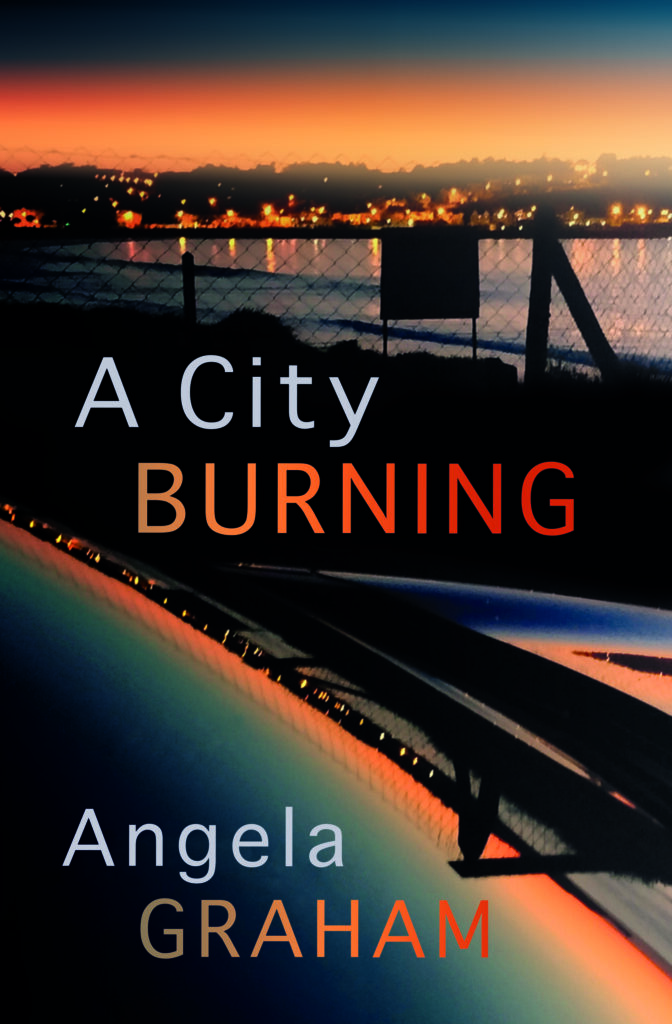Frank Ferguson reviews the book A City Burning by Angela Graham.
A City Burning, by Angela Graham, published in October 2020, is a collection of 26 short stories set variously in Northern Ireland, Wales and Italy. Each richly focused, tales provide finely drawn moments of realisation of their protagonist’s joy or tragedy.
Take for example the story of “The Triumph”, a witty account of a patient’s somewhat victory in receiving her preferred option of varicose vein treatment. In what at first might seem a modest plot, Graham’s astute handling of veins and vanities teaches us much about human frailty and dignity in the interplay between female patient, young male surgeon and blustering older male consultant.
Troubled Histories
This is an assured debut from Graham. Originally from Belfast, she enjoyed a highly successful career as a television and film producer in Wales and on the continent before becoming a full-time writer. From the story of “The Road” which captures a fractious 1969 Belfast from the point of view of a beleaguered Catholic in a majority-Protestant East Belfast, to “Amnesty” which explores the aftermath of a shocking public suicide, each narrative is vividly poised, compact and perfectly suited for the acts of confession and realisation that occur. Throughout, Graham shows a fascination with moments of calm within conflict, and conflict within calm.
Graham is often keen to focus on the experience of those not usually written into accounts of troubled histories, in particular Northern Ireland’s recent past. In “Witness” we follow the horror experienced by the character Harman, who informed his pastor of a shooting at a County Fermanagh Gospel Hall. In another example, Graham represents the experiences of children and young people in turmoil, forced to take sides during the Troubles, or struggling against this process in “Resistance”. One particularly powerful passage sticks with the reader: “That she would never let herself be washed away, never give up. I will cause ripples too. It was love or hate, resist or drown”.

Spiritual and More Tensions
Another common theme running through Graham’s collection is her examination of religious spiritual and moral tensions. In “Above it All”, set perhaps as closely to the centre of Rome’s Catholic heartland as possible, we learn how Donal, a man adrift within his confessional order, seeks to comprehend the conflicting pathways towards love and beatification. His journey offers a powerful exploration of ambiguities present in being a representative of the Church under the scrutiny of an overweening hierarchy and traditions; the discovery of love and desire, and individuals’ perceptions of mutual attraction.
Looking Afresh at Shared Predicaments
A City Burning traverses time, place and memory with refreshing bite. It provides a means to return and reflect on painful moments in Northern Ireland’s recent past, but also to move out and trace other worlds and places across Europe whose histories and tragedies are equally compelling. Images of the sea and swimming recur throughout several stories. “Coasteering” comes to mind, where Graham provides some fantastic poetic reflections on Irish seascapes.
What fires the attention is Graham’s mastery of language and her ear for local speech of both the poetic and prosaic kind. Her experimentation with Ulster Scots in particular points to a new talent in Irish writing making us look afresh at our often shared predicaments and take consolation in the landscapes and people around us.
